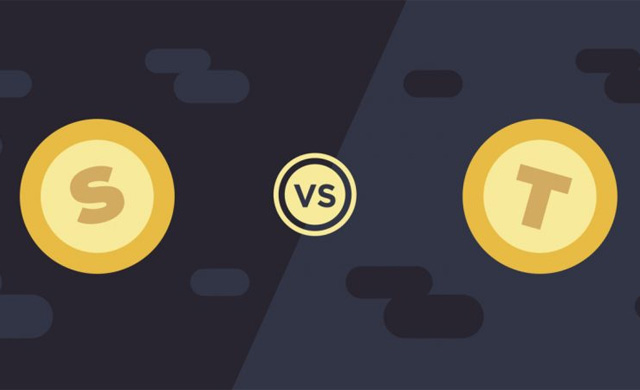Blockchain is no more a novel concept and is already being used in a wide array of industries, including supply chain management, energy market, utilities, healthcare, and etc. The cryptographic technology has given birth to useful innovations, like decentralisation and trustless networks. However, an important factor that has contributed to its widespread success is the use of tokens – namely security tokens and utility tokens.

Interestingly, these tokens are seen as the million dollar concept today and are used by many start-up ventures around the world as they go for crowdfunding. That said, what exactly are these tokens, what do they mean, what purpose do they serve?
Let us find the answers.
So, what is a Token?
A Token is a unit of value, utility, or an asset issued by a company.
On many occasions, tokens are issued by a company when it is launching an initial coin offering, or ICO as we know it – which is usually somewhat like an IPO but a slight different than the former. In IPO, one receives stock in exchange for his/her investment, whereas in ICO, a token is received for making an investment as part of the exchange.
Types of Tokens
There are primarily two types of tokens, namely Utility tokens and Security tokens.
Utility token: This is the most popular type among the tokens. A utility token is nothing but simply an app coin or user token, which allows future access to the products or services offered by a company. Hence, utility tokens are not meant for an investment.
There are many types of utility tokens available but investors should be aware of some projects that try to pretend to be as utility token; however, in reality they are not one. And as almost all utility tokens are limited in supply, many teams try to endorse it like an investment option due to demand and supply, thinking that value of the token will certainly rise if the app gets popular. But these days, such strategies are always on the watch list of the SEC.
Hence, it is imperative for one to be careful and have complete understanding about the economics and utility before investing in a token sale or ICO.
Filecoin, Sia and Ether are some of the examples of pure utility tokens.
Security token: A Security token functions like a traditional security asset, which represents a stake in the wealth created by third parties and acquires their value from the party’s gain or loss. It is subject to federal laws that govern securities and compliance failure may lead to severe consequences, including heavy fines and hurdles in a project development.
Alternatively, if a start-up upholds all the regulatory requirements, then security tokens can offer a wide range of applications, including the ability to offer tokens as a digital representation of shares of a company’s stock.
For instance, security token trading platform tZERO, a portfolio company of digital retailer Overstock, conducted an ICO to sponsor the creation of a licensed security token trading platform. The tZERO tokens were issued in accordance with the SEC regulations.
The difference between Utility token and Security token
The main difference between the aforementioned tokens depends on their use and functionality.
Security tokens are created as investments and the token holders are accountable to receive dividends in the form of additional coins every time the company issuing tokens earns a profit in the market.
Moreover, security token holders also become owners of the company. Blockchain can be used as a platform to create a voting system, allowing investors to exercise control on the company’s decision-making process.
On the contrary, utility tokens do not give their holders the right or ability to control to make any decision in a company. These tokens only allow users to interact with a company’s services.
Both of these tokens can increase in value if their prices increase in the market, and as they both earn some amount of profit, many are still confused to distinguish between them.
The Howey Test
The Howey Test can help classify if a crypto is a security token or not. This test was created by the Supreme Court to ascertain if certain transactions qualify as “investment contracts”. If it is so, then under the Securities Act of 1933 and the Securities Exchange Act of 1934, such transactions are considered securities, and therefore are subject to certain disclosure and registration requirements.
The test can determine whether a security exists when all the four elements given below exist:
- Investment of money
- In a common enterprise
- With an expectation of profits
- From the efforts of others
Hope this article has helped the readers understand the differences between the utility token and security token.
Interested in hearing more in person? Find out more at the Blockchain Expo World Series, Global, Europe and North America.

 Hot Features
Hot Features













